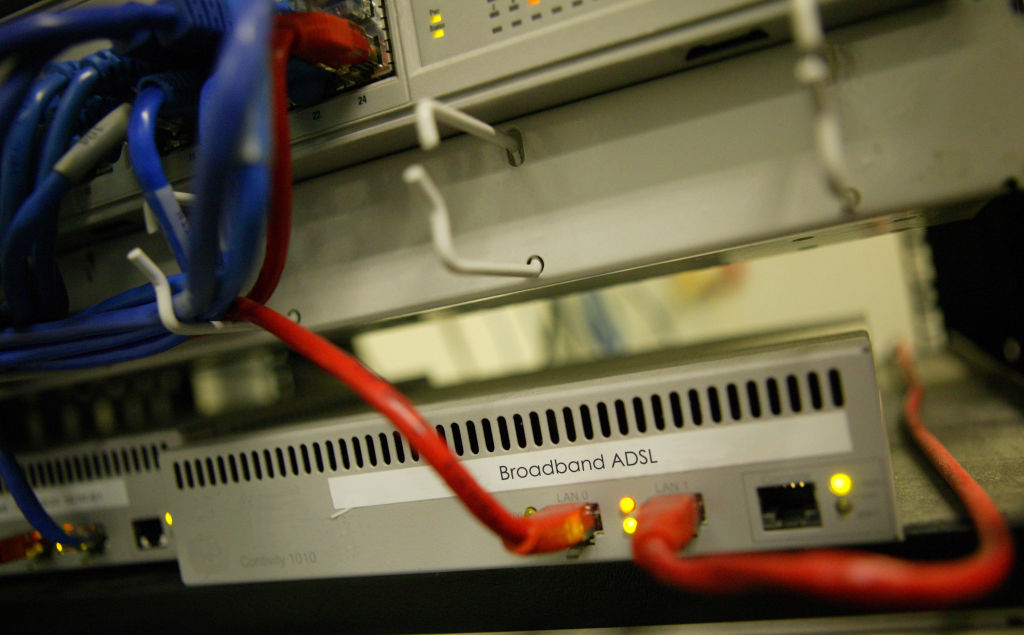Internet access should be classified as an essential service in rentals, experts say

Thousands of Australians are paying exorbitant fees and enduring prolonged waiting times to connect to the internet just because they have moved house, prompting consumer groups to argue being digitally connected is akin to the need for electricity.
While there are minimum connection standards for water and electricity, there is nothing in place for internet access.
And with an increasing number of people relying on the internet, there are calls by several groups for that to change so renters can have equitable internet access.
The Australian Communication Consumer Action Network, the peak body representing telecommunication consumers, said internet access should be classified as an essential service.
“We would like to see a similar model to the electricity supply in rentals applied to internet; landlords guarantee that the service is working and available and tenants can then go out and choose their own provider and plan as they see fit,” said chief executive Teresa Corbin.
“ACCAN believes that the residential tenancy acts need to be amended to specifically state that fixed telecommunication services [to minimum standards promised by government] form part of the minimum standard required in rented properties.
“This will ensure that appropriate fixtures will be provided in properties, so tenants can access these essential services. Any costs that are associated with the fixtures should fall to the landlord.”
In one worst-case scenario, Sydney renter Alex (who did not want her surname published) has been left without home internet for the past two years because her leasing agent and landlord failed to explain the apartment building had no more copper wiring available to connect another fixed internet line.
Alex was forced to sign up to wireless internet, which she described as expensive and unreliable. She has since disconnected the service and now solely relies on her mobile data.
Tenants’ Union of NSW senior policy officer Leo Patterson Ross said it was unacceptable that thousands of renters had few options to choose from and were left to foot the bill for expensive connection costs and plans.
“So much of our economy and even social interaction is done online that people are missing out on opportunities if they aren’t able to be connected in a timely fashion. There are people with specific needs, such as health and safety concerns, that they really need to be able to communicate at all times,” said Mr Patterson Ross.
“Over the last hundred years we’ve seen running water and electricity move from a luxury to essential. Being connected to the internet is going through the same process and the earlier governments get on board with recognising telecommunications as an essential, the better we will all be.”
Canstar editor and spokesman Simon Downes said for too long renters had had the raw end of the deal when they were forced to sign short-term leases and needed to keep internet contracts flexible.
“Unfortunately consumers who opt for monthly, rolling contracts, as opposed to one or two-year agreements, are penalised with high set-up fees that can total $200 or more,” he said.
”It’s another financial penalty for those who don’t have the luxury of owning their own home.”
Mr Downes said while guaranteeing a uniform connection time may not be feasible across the board, internet providers should be “upfront with customers about the wait times expected for connections and should be punished if they fail to stick to their advised timeframe”.
“If a provider fails to meet its time period the customer should be compensated,” he said.
Recently the Australian Competition and Consumer Competition forced NBN Co to pay retail service providers a $25 rebate for every late connection, fault repair or missed appointment.
Both ACCAN and Canstar believe that should be extended to all providers that fail to deliver internet services in a timely manner and the rebate be passed onto to consumers as part of a new Customer Service Guarantee.
We recommend
We thought you might like
States
Capital Cities
Capital Cities - Rentals
Popular Areas
Allhomes
More







